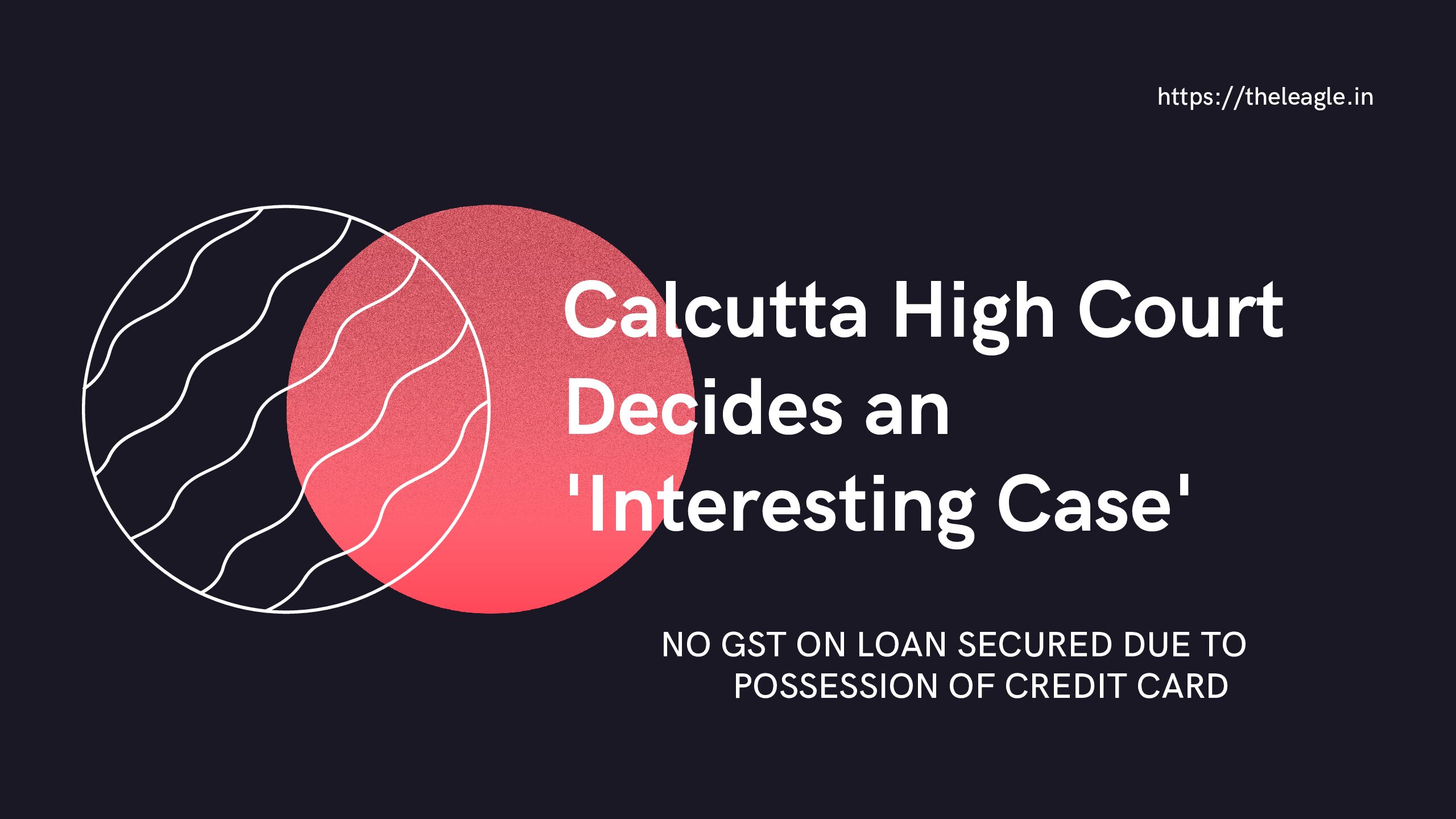In a recent case[1], the Calcutta High Court pronounced a decision which it described as ‘not of the ordinary kind’. The High Court declared, in the opening sentence of the judgment, that most interesting points were involved in the case. In non-dramatic terms, the case involved determination of whether GST could be levied on a loan obtained by a credit card holder from a bank. The High Court decided in the negative.
Facts
The appellant possessed a credit card provided by Citi Bank. The bank provided a loan to the appellant of Rs 6,50,000/- with interest @13% per annum payable in 12 equal monthly instalments. It was in the monthly statements of the appellant’s credit card where the loan and EMI payable were indicated. The appellant challenged the levy of IGST on the transaction in question, i.e., the appellant obtaining loan from the bank. Via a writ petition before the Calcutta High Court, the appellant sought a declaration that IGST on the impugned transaction should not have been charged, and if charged should be refunded.
Arguments
The Calcutta High Court referred to Notification No. 9/2017 – Integrated Tax (Rate) wherein a list of services were exempted from IGST except tax levied on interest in credit card services. The appellant argued that possession of credit card entitled him to a loan, but the advancement of loan had nothing to do with the credit card or service which bank was offering in relation to it. The loan agreement was a separate and standalone agreement between the appellant and the bank unrelated to the credit card. He further argued that only for purpose of payment was EMI reflected in the credit card statement, otherwise the bank was not charging the same interest it charged for a credit card loan. Appellant’s case was that only the services provided in relation to use of a credit card with a merchant or online constitute credit card services and not a loan advanced through cheque without use of the card.
The bank, on the other hand, simply argued that since the loan was granted to the appellant because he possessed a credit card, the loan should be regarded as a credit card service.
Analysis by the Calcutta High Court
The Calcutta High Court noted that terms and conditions on which loan was granted to the appellant stated that it was only available to holders of Citi bank credit cards. And the appellant was granted a loan as per those terms and conditions.
The High Court observed that to be a credit card service, the service should be between the issuer of card and holder of card, and there should be some relationship or nexus with holding, operation, or use of such card of transactions relating to it. The Calcutta High Court concluded that the advancement of loan did not constitute a credit card service by reasoning as follows:
If the loan was advanced to the appellant through use of the card, then one could have understood that the service was related to the card. In this case, the bank declared the appellant card holder to be eligible to receive loan. His loan amount was advanced by a cheque or draft issued by the bank. That is to say, the loan amount was not generated by charging the appellant’s card. (page 8)
The High Court acknowledged that the loan amount appeared in the statement relating to use of the credit card, but it noted that it was more of a statement of account. And that the loan transaction should be taken as an altogether separate transaction which had no relation to the issue, holding or operation of the card. Thus, sending the loan statement with credit card statement did not create a sufficient nexus with the credit card, especially since the loan was not secured through use of the credit card per se.
Conclusion
The decision hinged on the fact whether the condition of prior possession of the credit card to avail the loan could be interpreted to mean the loan was an extension of credit card services. The fact that the loan was advanced through a separate cheque and not through use of the credit card was, in my opinion, decisive in Calcutta High Court’s conclusion and rightfully so.
While the facts are certainly ‘interesting’ it is important to note that exemption from GST was due to the specific facts in the impugned case. It would be unwise to deduce that any service relating to a credit card but not involving the actual use of the credit card would be exempt from GST. The term ‘credit card services’ has been infused with some meaning by the Calcutta High Court in the impugned case, but it is a fact specific determination and is likely to be tested in similar cases in the future.
[1] Ramesh Kumar Patodia v City Bank N.A. and Ors, available at https://taxguru.in/wp-content/uploads/2023/07/Ramesh-Kumar-Patodia-Vs-City-Bank-N.A.-and-Ors.-Calcutta-High-Court.pdf
